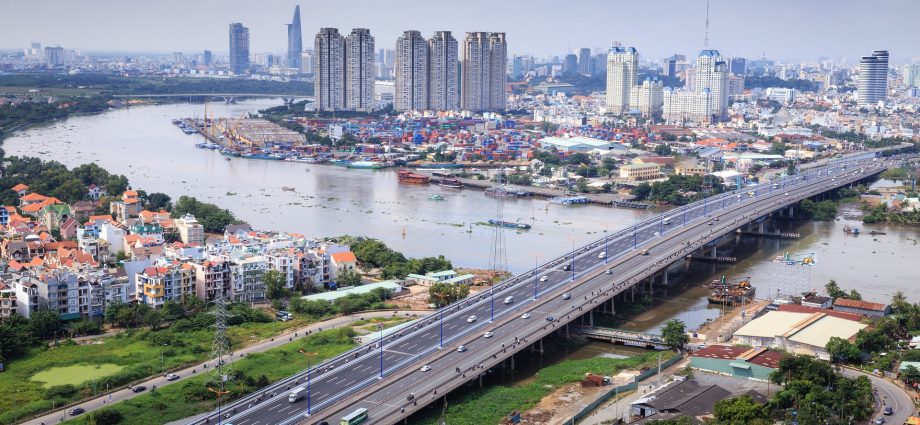Ho Chi Minh City plans to develop and implement a regulatory framework alongside policies associated with blockchain technology to ensure that the technology can flourish while minimizing potential risks when building a smart city, a top city official said at Saigon Hi-tech Park’s annual conference held last Friday. The city’s efforts to build a smart city will also have the support of the Ministry of Science and Technology, which plans to launch a new project called “Support a National Innovative Startup Ecosystem by 2025” which will give priority to blockchain startups. The conference saw the participation and attendance of hundreds of local and foreign researchers, startup representatives, entrepreneurs and managers in the field of blockchain, besides top city officials.
Tran Vinh Tuyen, vice chairman of Ho Chi Minh City’s People’s Committee, said that the city will collaborate with various agencies to develop a roadmap for the application of blockchain technology in the country. He also added that the most populous city of Vietnam will also give top priority to projects that apply science and technology, particularly in the areas of artificial intelligence, in pursuit of its goal of developing a smart city.
Vo Thi Trung Trinh, deputy director of the city’s department of information and communications, noted that in order to build a smart city, the city will need to develop and apply technology-based solutions to form a digital government. She added that blockchain can fulfill that role through its careful implementation and integration in public services and urban management systems.
The city plans to promote blockchain in its drive to build a smart city because the technology has progressed and evolved to the stage where it is capable of building secure, efficient communication platforms for smart cities. Blockchain has come a long way since its inception nearly a decade ago as a decentralized, distributed ledger for the cryptocurrency bitcoin, and now it is able to function as a platform for smart cities, offering better public services and more effective utilization of available resources, including urban transportation, infrastructure needs and digital government.
The annual conference also saw the signing of a memorandum of understanding (MoU) between Saigon Hi-tech Park and HD KING Technology World with the aim of promoting blockchain technology and artificial intelligence (AI) to support the development of Ho Chi Minh City’s smart city plans. Another MoU was signed between Saigon Hi-tech Park Incubation Center and South Korea’s CBA Ventures, with both parties agreeing to technology transfers and human resource training in the field of blockchain technology.
Some of the challenges the city will need to overcome in its pursuit of building a smart city are the lack of a specific legal framework to regulate new technology-based business models such as fintech and digital asset management, and the resistance of companies and consumers in adopting new technologies. Vietnam also currently lacks the highly-skilled and qualified personnel needed for developing products and services in the fields of AI, blockchain and big data.
To build a successful and sustainable blockchain ecosystem for a smart city, all of the vital stakeholders such as incubators, accelerators, startups, and community members should be involved and actively participate and engage in the city’s goal of developing a smart city. With government support and careful planning, Vietnam could develop into one of Southeast Asia’s primary blockchain hubs.

